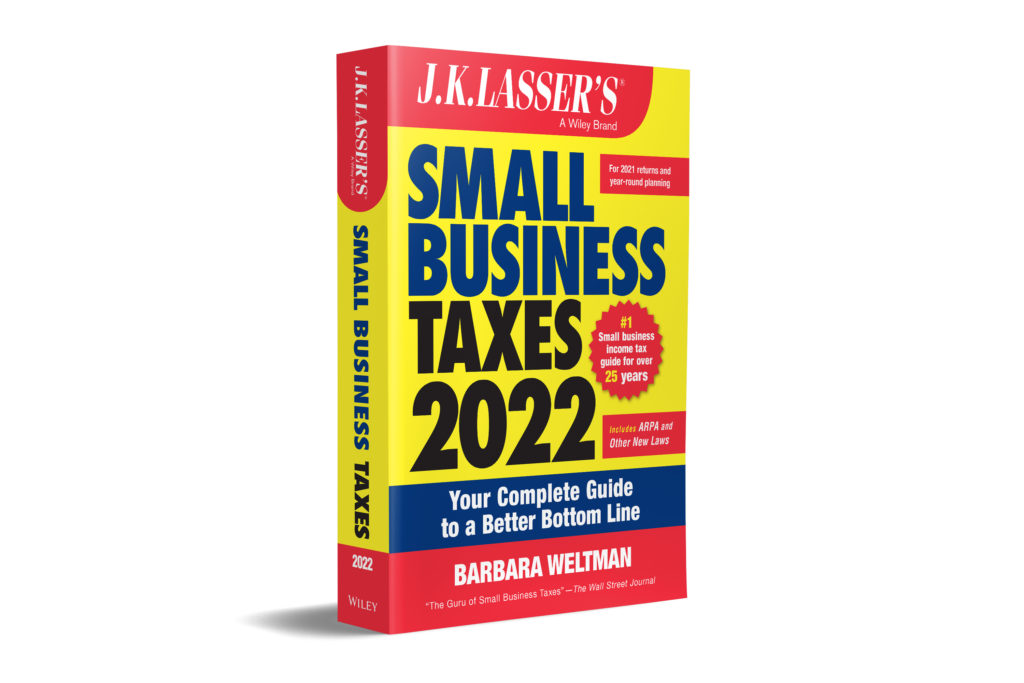 For more than 25 years, I’m proud to say my tax book for small businesses has been the go-to guide for owners and their tax advisers. The 2022 edition for preparing 2021 returns as well as tax planning for 2022 has been updated to incorporate changes from the American Rescue Plan Act as well as other new laws, court decisions, and IRS pronouncements. As has been my practice, I’ve written my own book review to explain the purpose of the book, what’s new, and what’s ahead.
For more than 25 years, I’m proud to say my tax book for small businesses has been the go-to guide for owners and their tax advisers. The 2022 edition for preparing 2021 returns as well as tax planning for 2022 has been updated to incorporate changes from the American Rescue Plan Act as well as other new laws, court decisions, and IRS pronouncements. As has been my practice, I’ve written my own book review to explain the purpose of the book, what’s new, and what’s ahead.
Why small business owners need a tax book
If you’re like the vast majority of small business owners (about 90%), you use a CPA or other tax pro to prepare your business returns. You may even work with tax experts on specific matters, such as inventory management, payroll, and succession planning. That’s great, but for small businesses, continually asking for advice on every matter that comes up can be too pricey.
It’s my belief that whether you’re just starting out or have been running your business for a long time, all small business owners need to be informed about taxes and can’t rely solely on tax professionals. The reason: owners, not their accountants or software, run their businesses and make decisions impacted by taxes on a daily basis.
- What are the tax differences for entity types (e.g., S corporation versus LLC)?
- Should you hire employees or engage independent contractors?
- Should you buy or lease equipment?
- What type of financing should be used to start or grow a business?
- Who should own the truck—the owner or the company?
- What are the consequences of offering your employees a particular type of health care arrangement, or opting not to offer any medical coverage?
- What are the tax implications of various employee benefit plans and how do you offer them without messing up and incurring penalties?
- What are the tax and practical implications of operating a business from home?
You may get information from your tax pro that’s helpful to your business. But you can also educate yourself by reading my book—without incurring professional fees. At a minimum, you’ll be able to ask your CPA or other tax adviser the right questions to protect your business and cut your tax bill.
Why tax professionals need this book
As a tax pro, I’m assuming you are aware of tax rules impacting clients that are small businesses and their owners. The book goes beyond tax rules to provide a holistic approach to various matters that will help tax advisers provide the best guidance for clients. For example, it’s one thing to understand the tax implications of debt versus equity financing. It’s another to appreciate the practical implications of these choices of which clients should be made aware.
What the book includes
In addition to reflecting all cost-of-living adjustments to various limitations and eligibility requirements for tax breaks, the 2022 edition covers the tax changes from the American Rescue Plan Act of 2021 and the Consolidated Appropriations Act, 2021, as well as prior legislation (e.g., Tax Cuts and Jobs Act, SECURE Act, the Families First Coronavirus Relief Act, and the CARES Act) dictating new actions for 2021 and beyond.
This edition also includes COVID-19-related rules that employer must or may follow and the tax implications of government programs, such as Paycheck Protection Program (PPP) loans and grants from the Restaurant Revitalization Program and the Shuttered Venue Operators Program.
Looking ahead
The tax law doesn’t stand still. There are always new laws, cases, and rulings that arise after the publication of the book. To update readers, there’s an online supplement to explain last-minute developments, including any new IRS guidance and court decisions that could impact 2021 returns and tax planning for 2022 and beyond. The supplement is free and should be posted early February 2022 on my website. The supplement will include changes from the Infrastructure Investment and Jobs Act of 2021 (which was signed into law on November 15, 2021) and, if enacted, new rules from the massive reconciliation measure. It will also tell you whether a number of business-related tax rules set to expire at the end of 2021 have been extended.
Interacting with readers
Each year I receive emails from readers asking questions, suggesting future topics to include, and sometimes pointing out errors. I’m very grateful for these communications, which helps me continually improve the book and provide valuable assistance to small business owners. If you have thoughts on the book, please email me at barbara@BigIdeasForSmallBusiness [dot] com.


